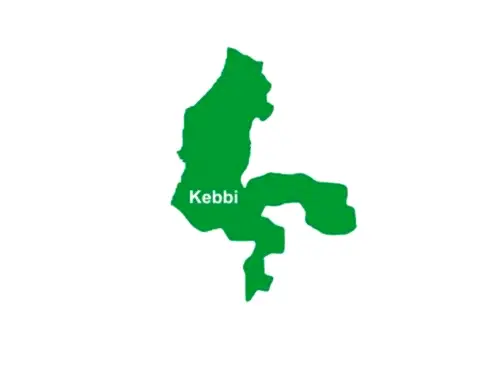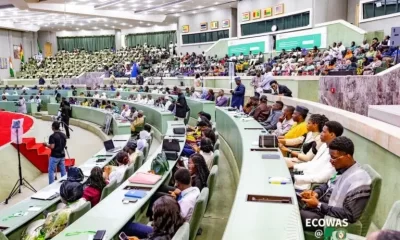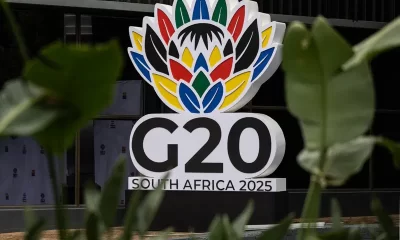Forgotten Dairies
Exploring Kebbi State, Nigeria -By Seun Elere
Kebbi State, with its rich cultural heritage, strategic location, and thriving agricultural industry, is one of the most promising states in Nigeria. Unfortunately, the economic and social values of the state has been poorly promoted across the country. There’s hardly anyone in Nigeria that’s not eating rice from Kebbi. While challenges remain, the state’s commitment to development and modernization presents opportunities for both investors and residents alike. Whether through the promotion of agriculture, tourism, or cultural heritage, Kebbi stands as a testament to the resilience and potential of the northern Nigeria.

Kebbi State, located in the northwestern region of Nigeria, is a place where history, culture, and nature converge to offer a unique experience. With its strategic location bordering Niger Republic, Kebbi is not only an important cultural and agricultural hub in Nigeria but also a state that holds immense potential for investment and growth.
The state shares borders with Sokoto State to the north, Zamfara to the northeast, and Niger State to the south. Its proximity to the Niger River and the vast expanse of agricultural land makes Kebbi an ideal location for farming and irrigation-based projects. The climate of Kebbi is largely characterized by a tropical dry season, with temperatures often reaching high levels during the dry months from March to June. Rainy seasons occur between June and September, providing much-needed water for its extensive agricultural activities. One fascinating fact about this state is that her rain last for only a few months but the state always record remarkable agricultural produce.
Kebbi is an agrarian State with potential to supply most of the food crops capable of feeding the entire north, if not Nigeria. One of the State’s national pride is rice. Rice production is vital to the local economy, providing livelihoods for thousands of farmers and contributing to food security in the state. Kebbi is known for its efforts in promoting self-sufficiency in rice production, which aims to reduce dependency on imported rice. The Kebbi State government has implemented various agricultural policies and programs aimed at boosting rice production. This includes the provision of high-yielding rice varieties, improved farming techniques, and access to credit facilities and fertilizer for farmers. This has earned the state the bragging right of the highest rice producing state in Nigeria as it now contributes over 2 million metric tonnes of Nigeria’s 5 million metric tonnes local rice production. Little wonder it became the first state to commence fortification of rice in Nigeria in 2023. In addition to its rice production prowess, Kebbi State produces significant quantities of Onion, Wheat, Groundnut, Garlic, millet and maize. There’s hardly any local government area in the State without very active agricultural produce. Indeed, this state is central to Nigeria’s food security drive.
Aside from agriculture, Kebbi State also has potential in industries such as mining and tourism. The state is rich in mineral resources, including gold, limestone, and clay, though these sectors remain underdeveloped. In terms of tourism, Kebbi’s scenic landscapes, historical landmarks, and festivals (such as the Argungu fishing festival, Uhola annual cultural festival, etc) present ample opportunities for growth in the hospitality industry.
Kebbi is a peaceful state. But for the infiltration of bandits (ravaging the entire northwest states) in some of the local government areas of the state, you can hardly hear of or see any form of ethno-religious crisis in the State despite the presence of multiple ethnic groups with diverse religious backgrounds. I was told that Christian and Moslems intermarry and are interrelated, especially in the Zuru axis of the State with high indigenous Christian population. This is a rare gem in Nigeria.
Recently, I had an interaction with someone from Kebbi State and he told me that Kebbi hasn’t been lucky with good governors but I slightly disagreed with him on that. My first visit to Kebbi State was in 2012 and that was my very first experience of the true meaning of good roads. I travelled from Birnin Kebbi to NYSC camp in Dakingari without any pothole. I was also informed that the then governor also constructed similar roads across the state. I became a bit more familiar with the State during the administration of Senator Atiku Bagudu and I heard a number of dispassionate commentators say that he cuts excessive spending in governance of the State. Voices on the street are that his was one of the few administrations that left billions in the government coffers for his successor. Bagudu was also praised for appointing youths in his cabinet – a good number of his commissioners were very young, intelligent and vibrant technocrats, some of which has also been reappointed by the current administration. The relatively new administration of Dr Nasir Idris has been up and doing in transforming the state. The Governor has been busy with infrastructural developments and strengthening existing institutions. Birnin Kebbi has witnessed a dramatic transformation and now compete well with capital cities of bigger states across the country. The Governor is constructing roads and improving existing ones, modernizing markets, and rebuilding healthcare facilities across the state.
Kebbi State remains one of the few states (if not the only state) that feeds all its secondary school pupils. This is done across both boarding and day schools. One commendable disposition of the current Governor is his inclusivity and this he demonstrates from his very home. His two wives are seamlessly carrying on with state affairs and supporting him on health, nutrition and education fronts without any confrontation or challenge. This is very very rare in Nigeria and especially in the north. I think he is the only Governor that has done this, in Nigeria, in recent times. The re-appointment of some retired but outstanding civil servants (such as the former permanent secretaries of the state Ministry of Agriculture and Ministry of Budget and Planning) is testament to his drive for inclusion and to deliver maximum impact of governance to the good people of Kebbi State. So, you see, I couldn’t have agreed with that person that said Kebbi hasn’t been blessed with good leaders considering all these.
The state are not without its own challenges. Despite the immense contributions of the state to agriculture in Nigeria, the agricultural potential of the state hasn’t been maximize. There’s need for more work to be done by the Federal Government to support the state in reaching its agriculture potential. The state government also needs to do more in the drive towards inclusive government by ensuring that all ethnic and religious groups in the State are equally represented. There’s also the need for more inclusion of women in the cabinet. Perhaps one of the most challenging road in the State is the Zuru road. The recent pronouncement by the governor on the construction of the road is highly commendable and efforts should be made for timely commencement and completion of the road.
Kebbi State, with its rich cultural heritage, strategic location, and thriving agricultural industry, is one of the most promising states in Nigeria. Unfortunately, the economic and social values of the state has been poorly promoted across the country. There’s hardly anyone in Nigeria that’s not eating rice from Kebbi. While challenges remain, the state’s commitment to development and modernization presents opportunities for both investors and residents alike. Whether through the promotion of agriculture, tourism, or cultural heritage, Kebbi stands as a testament to the resilience and potential of the northern Nigeria.
Seun Elere
Public Affairs Analyst
Continue Reading








